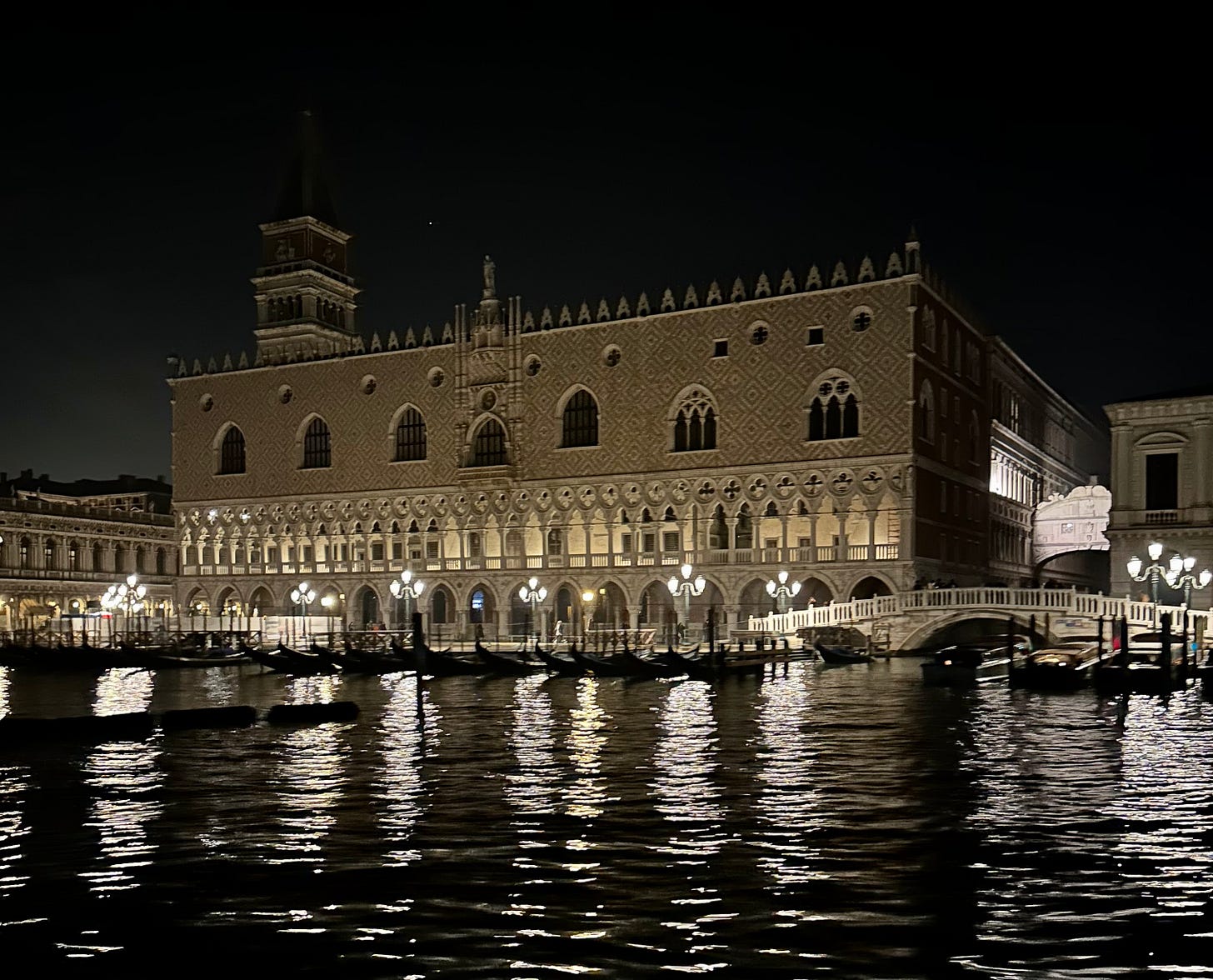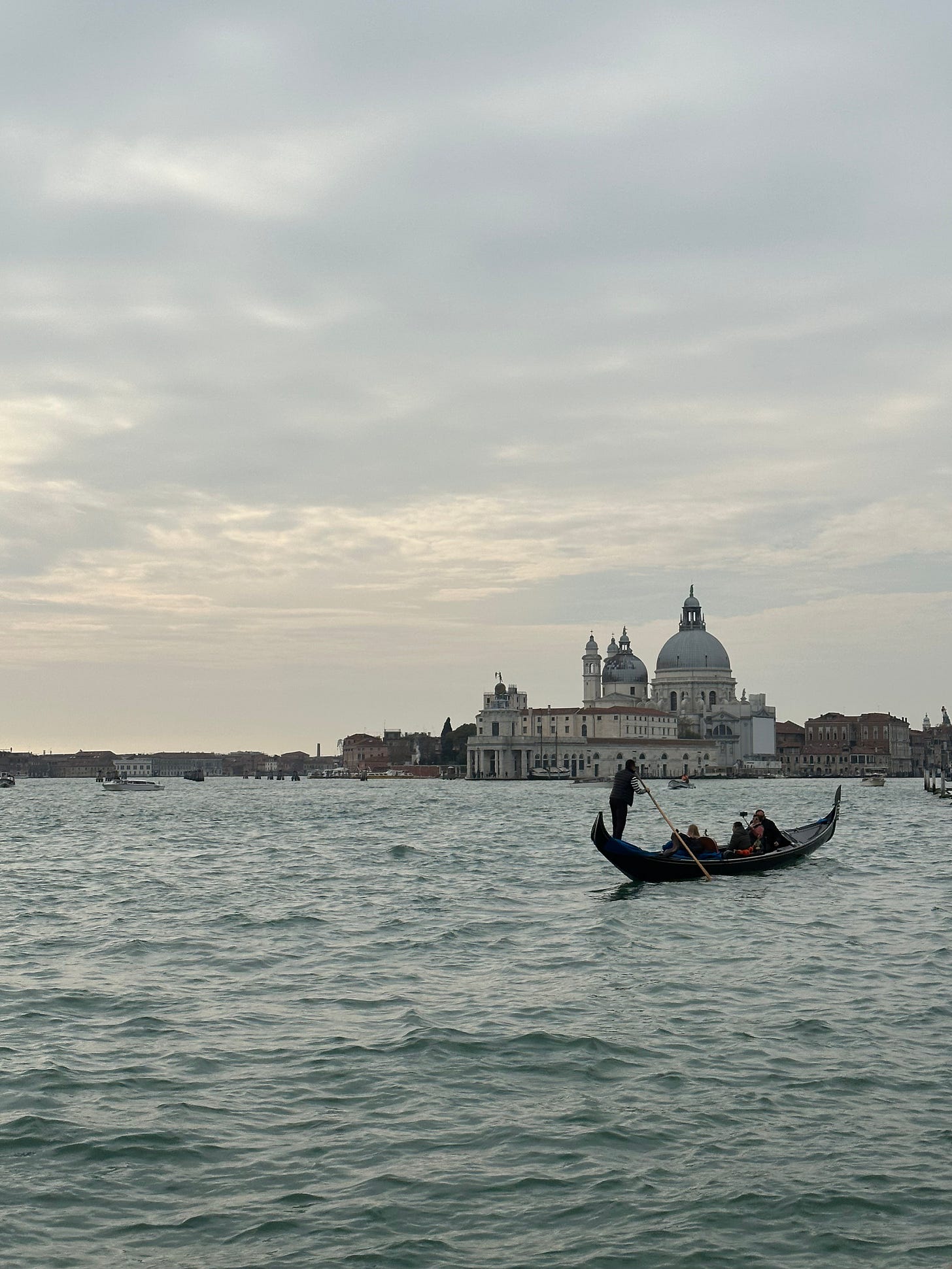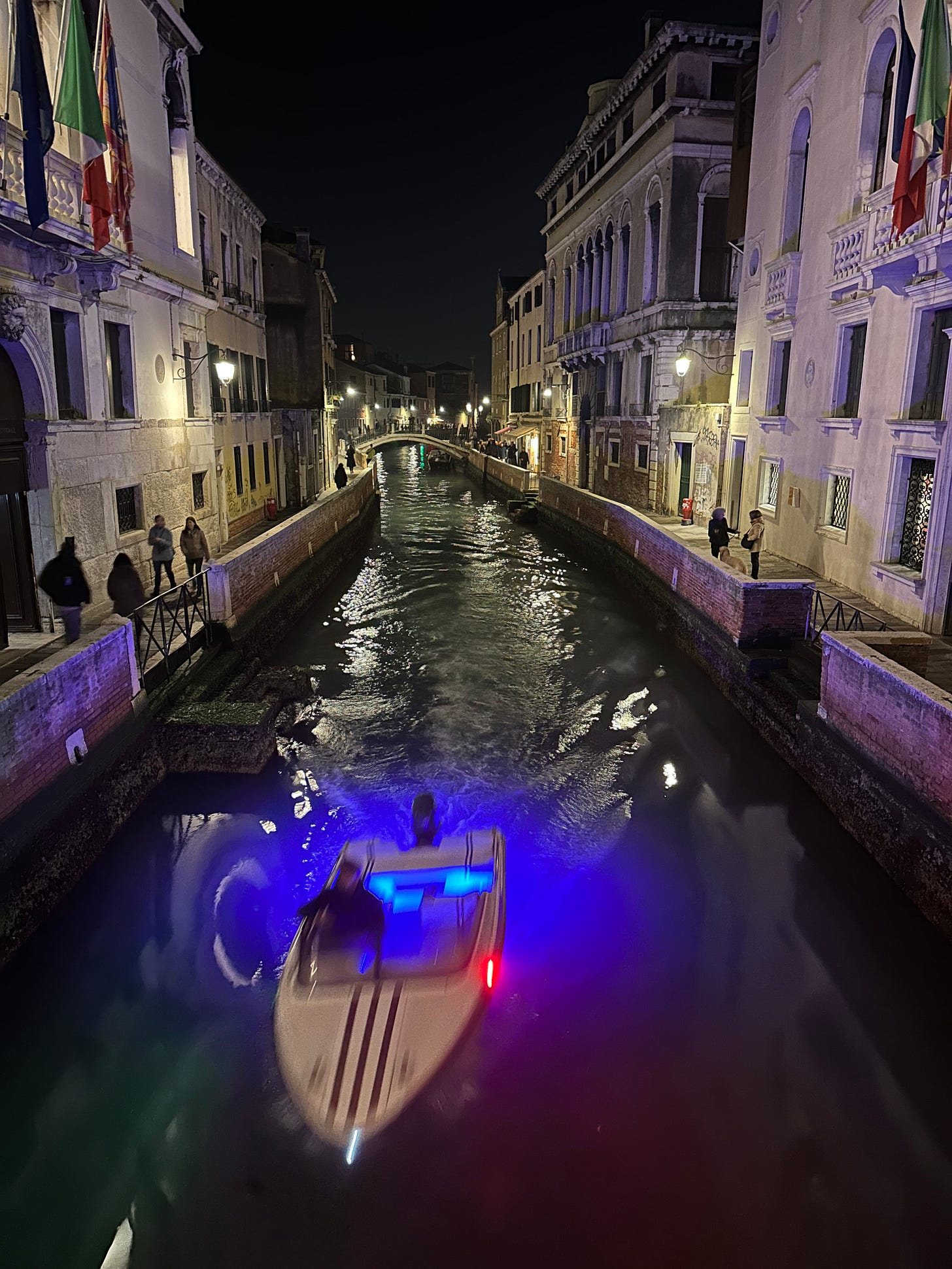Earlier this week I went on an impromptu jaunt to stay with my pal Gillian in Venice. Arriving at Santa Lucia station is always magical, and almost exactly thirty years ago it was the site of a small cafeteria transaction which turned out to be one of the defining events of my adolescence.
As I took the vaporetto down the Grand Canal on a quietly crisp November evening I was reminded of Franco Battiato’s song Venezia - Istanbul. It’s a sort of stream of consciousness which begins with a comparison between Venice and Istanbul and meanders, as thoughts do.
The contradictions, hypocrisies, cynicisms, and incoherence of the twentieth century are fractured in the very essence of staccato modernity. It reminds me of Braque’s early collages, such as this one from 1914 in the Met in New York.
Battiato offers glimpses of ideas of the last century every bit as fleeting and ungraspable as reflected lights trembling in inky waters moved by a water bus. Which all sounds very serious, but it’s also a great tune.
Translation and footnotes are all mine, it’s a fairly esoteric song and I’m probably missing elements. If anyone has anything to add please do in the comments!
Venezia mi ricorda istintivamente Istanbul
stessi palazzi addosso al mare
rossi tramonti che si perdono nel nulla.
D' Annunzio montò a cavallo con fanatismo futurista
quanta passione per gli aeroplani e per le bande legionarie
che scherzi gioca all'uomo la Natura.
Mi dia un pacchetto di Camel senza filtro e una minerva
e una cronaca alla radio dice che una punta attacca
verticalizzando l'area di rigore...
ragazzi non giocate troppo spesso accanto agli ospedali.
Venice reminds me instinctively of Istanbul
The same buildings right on the water
Red sunsets that fade to nothing.
D’Annunzio climbed on his horse with Futurist fanaticism
What passion for aeroplanes and for legions
What games Nature plays on man1.
Give me a pack of filterless Camels and a minerva2
and a radio commentary says that an attack comes
pressing forward into the penalty area…
boys, don’t play [football] too often by hospitals.
Socrate parlava spesso delle gioie dell'Amore
e nel petto degli alunni si affacciava quasi il cuore
tanto che gli offrivano anche il corpo: fuochi di
ferragosto.
E gli anni dell'adolescenza pieni di battesimi e comunioni
in sacrestia: Ave Maria.
Socrates spoke often of the joys of Love
and the hearts of his pupils came forth
such that they even offered him their bodies: fireworks of Ferragosto.
And the years of adolescence full of baptisms and first communions
in the sacristy: Ave Maria.3
Un tempo si giocava con gli amici a carte e per le feste si
indossavano cravatte per questioni estetiche e sociali; le
donne si sceglievano un marito per corrispondenza...
L'Etica è una vittima incosciente della Storia: ieri ho
visto due (uomini) che si tenevano abbracciati in un
cinemino di periferia... e penso a come cambia in fretta la
Morale: un tempo si uccidevano i cristiani e poi questi
ultimi con la scusa delle streghe ammazzavano i pagani.
Ave Maria.
There was a time when we played cards with friends and at parties
we wore ties for aesthetic and social reasons;
women chose their husbands by correspondence…
Ethics are an unwitting victim of History: yesterday I
saw two (men)4 in an embrace in a cinema in the outskirts… and I think how quickly
Morals change: once Christians were killed and then they killed pagans using the
excuse of witches.
Ave Maria.
E perché il sol dell'avvenire splenda ancora sulla terra
facciamo un po' di largo con un'altra guerra.
And so that the “coming sun” may still shine upon the earth5
let’s make some space with another war.
D’Annunzio’s March on Fiume with the “bande legionarie” cited here was the precursor to Mussolini’s March on Rome. When Mussolini’s own fanaticism led to his rise to power rather than acknowledge D’Annunzio he had him exiled to Lake Garda where he lived his last years. In turn Mussolini’s downfall would see him establish the short-lived Nazi puppet state at Salò, not far from Gardone sul Garda where D’Annunzio’s lived out his last, debauched, years. What games, indeed, Nature plays on man.
Minerva was an Austrian brand of radio.
I assume an allusion to time spent as an altar boy.
Not sung by Battiato but written (in parentheses) in the lyrics which came with the original record.
In a letter of 1872 Garibaldi wrote to Celso Ceretti of his participation in the First International that the International Workingmen’s Association was the “sol d’avvenire”.







Your impromptu jaunt was immeasurably fun!